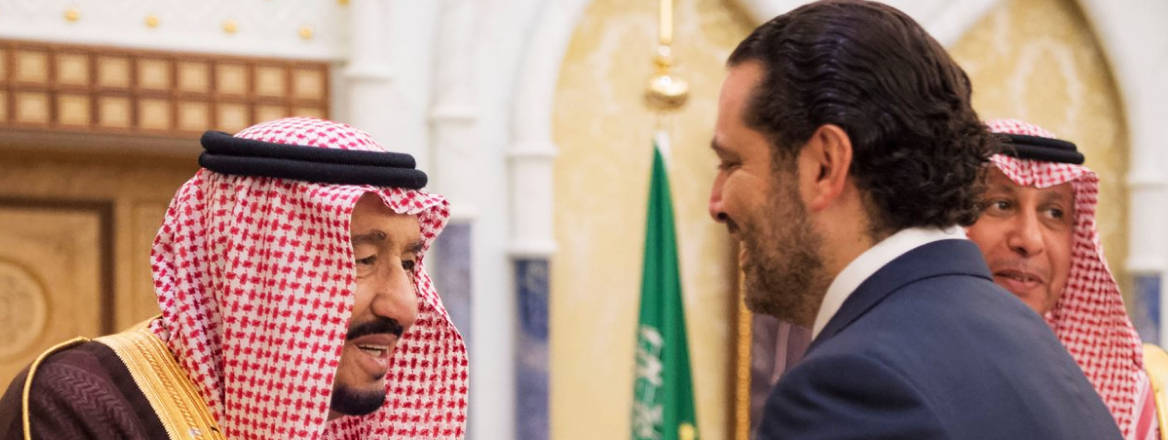As Saudi Arabia yesterday ordered its citizens to leave Lebanon, Syria seems to be reasserting its historic control over its western neighbour.
Saudi Arabia yesterday demanded its citizens leave Lebanon immediately as tensions between the two countries reached boiling point following the resignation in Riyadh of Lebanese Prime Minister Saad Hariri.
This opened the way for a new Pax Syriana, a term coined when Syria dominated Lebanese affairs after both countries gained independence from France following the Second World War.
However, with the – some say forced – resignation last week of Lebanese Prime Minister Saad Hariri, Pax Syriana has returned with a vengeance since Damascus now holds all the cards in Lebanon’s politics.
As Hariri announced his resignation in the Saudi capital Riyadh, citing Iranian interference, the irony was not lost on many observers as to who was calling the shots given that this echoed how the Saudis viewed the regional power game.
Saudi Arabia seems to have locked itself out of being an arbiter in the war in Syria and by default also Lebanon
The allegation that Saudi Arabia had forced Hariri’s hand might have some merit. It could be argued the real reason Saudi Arabia is frustrated with Lebanon is that Damascus is back as a major player in regional affairs again.
Saudi Arabia seems to have locked itself out of being an arbiter in the war in Syria and by default also Lebanon. Given that Yemen has become a more pressing priority and that Qatar and Turkey have joined forces in Syria with Iran and Russia, Riyadh has been frozen out as a regional power.
The Saudis had built their influence in Lebanon with their close alliance with Syria and the Assad family. Indeed the late King Abdullah saw an alliance with Syria as a way to counter Iran’s influence.
However, as the Syrian government has recovered territory and regained control over the major cities, Damascus’s influence not just in Lebanon but also close ties with Egypt and Algeria began to frustrate Saudi Arabia.
Syria’s allies in Lebanon are from the highest echelons, such as Christian Maronite President Michel Auon, the Speaker of the Assembly, Nabbih Berri, a Shia from the south who leads the Amal Party, the mostly Greek Orthodox Syrian Socialist Nationalist Party and the all-powerful Shia militia Hizbullah.
Damascus has, since the 1970’s civil war, been the king-maker and breaker, making sure that all the parties involved, the Sunnis, the Shias, the Druze, Christians of various denominations and Palestinians, knew who was boss. Even Israel accepted this, although it cultivated its own ties with the Maronites and Greek Orthodox.
Amid questions about who actually rules Lebanon now, Syria or Iran, Jubin M Goodarzi contends in his well-researched book, Syria and Iran: Diplomatic Alliance and Power Politics in the Middle East, that Tehran needed Damascus more than the other way around. In Lebanon, Syria called the shots and not Iran when it came to overall strategic decisions.
The rivalry between Saudi Arabia and Iran over reginal dominance has dominated the headlines recently. Since the start of the Syrian civil war, Saudi Arabia and its Gulf allies, such as the UAE, have scaled back their presence in Lebanon.
These events come as no surprise to some seasoned Damascus-watchers, as a destabilised Syria could lead to a catastrophic war in which Lebanon would implode
In 2015, they prohibited their citizens from travelling to Lebanon, and Saudi Arabia completely cut military aid in 2016. However, this opened the door for Iran.
The situation has further been compounded by leaks that confirmed Saudi Arabia’s role in a rebel attack on the presidential palace in Damascus in a last-ditch attempt to remove President Bashar Al-Assad.
However, these events come as no surprise to some seasoned Damascus-watchers, with one warning how a destabilised Syria would lead to a catastrophic war in which Lebanon would implode.
As the headlines elsewhere in the Middle East focus on Iranian–Saudi rivalry, Lebanon’s future is tied with that of Damascus rather than Riyadh or Tehran. For as long as the Syrian state was weak, Lebanon did not have a pro-Damascus leader. However, with Syria in the ascendency – with Russian help – there is a Damascus-friendly president in Beirut.
However, Hariri might return when Syria and Saudi Arabia start aligning their interests and restart their dialogue, and this may not be as far off as some believe, given that Egypt, Algeria, Tunisia are all courting Damascus again.
Most Arab capitals realise that for Lebanon’s stability, Syria must be allowed to breathe in peace.
The views expressed in this Commentary are the author's, and do not reflect those of RUSI or any other institution.

